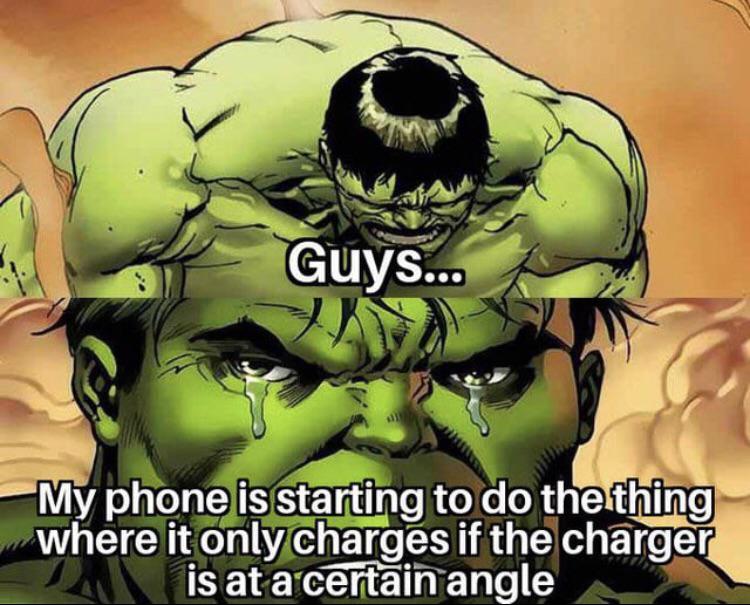this post was submitted on 03 Oct 2024
863 points (97.4% liked)
Funny: Home of the Haha
5767 readers
1254 users here now
Welcome to /c/funny, a place for all your humorous and amusing content.
Looking for mods! Send an application to Stamets!
Our Rules:
-
Keep it civil. We're all people here. Be respectful to one another.
-
No sexism, racism, homophobia, transphobia or any other flavor of bigotry. I should not need to explain this one.
-
Try not to repost anything posted within the past month. Beyond that, go for it. Not everyone is on every site all the time.
Other Communities:
-
/c/TenForward@lemmy.world - Star Trek chat, memes and shitposts
-
/c/Memes@lemmy.world - General memes
founded 1 year ago
MODERATORS
you are viewing a single comment's thread
view the rest of the comments
view the rest of the comments

Then you are truly, talking out your ass.
Within the first year, even with slow wired daily charging, the battery would have lost at least a few percentages of capacity. By year three, losing around 10% is basically unavoidable, but typical loss at that point is closer to 15 or 20% simply due to age.
You can use something like AccuBattery to measure the current real capacity of your battery. It will measure the amperages going in and out of the battery, calculate the milliamphours, then average it over several battery cycles.
Even when new, the real capacity will vary several hundred milliamphours from cell to cell, within the same exact model. Batteries are a chemical device, some inconsistency from one cell to the next is unavoidable. That's why cell monitoring and balancing circuits are so critical in multi-cell packs.
You may not have noticed a difference, but the capacity loss that your battery has suffered is almost certainly worse than it would have been if you'd charged wired and slowly.
I have a Ph.D. in battery chemistry
Ok that's what matters in a device. A 10% falloff on a 2 day battery life is not significant.
You can charge wirelessly slowly. I had the system set up to charge to full over the course of the entire night which is a rate around C/10.
Then you're not exactly using wireless charging the way the average person does, are you?
A "hotter" charger will degrade the battery more. Have I at any point claimed something beyond that?
The average Qi charger wont trickle at the slowest speed possible to meet a schedule, unless a user specifically sets it up that way. Comparing the average use cases and user habits, the cooler charging solution will net you more cycles.
Does your doctorate allow you to somehow claim otherwise?
There's a wide temperature range where these materials function optimally. You'd need to get them to the point where they're burning to touch before any significant degradation occurs. For reference 50 °C is a good temperature for tea.
Now that, is much better than walking in with "my battery has had 'zero' degradation in three years".
Why did you lead with something that sounds like obvius anecdotal bullshit if you knew this?
That said my phone sits between 55 and 65 degrees when wireless charging at even just 5 watts. I don't think it's ever not been hot to the touch when picking it off a wireless charger.